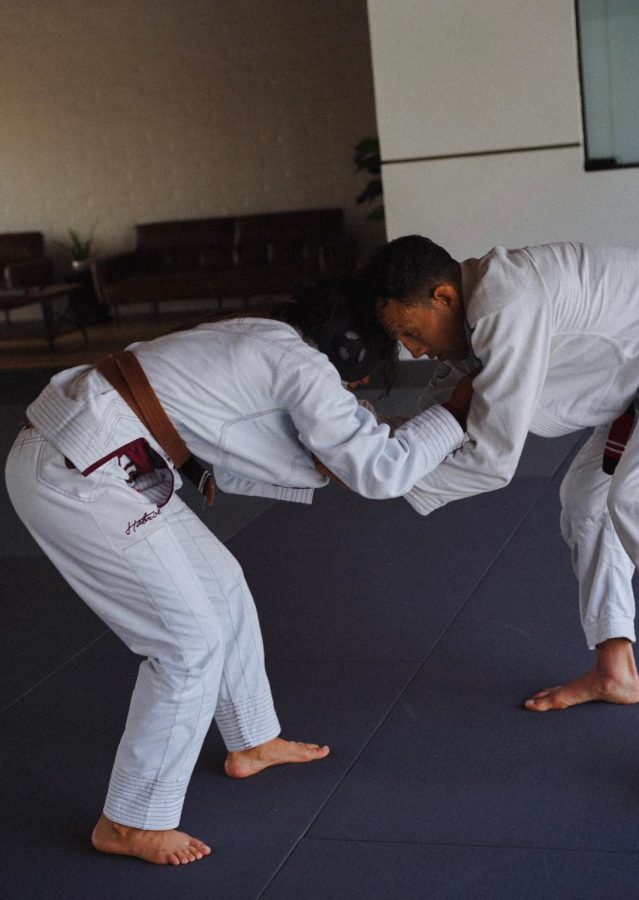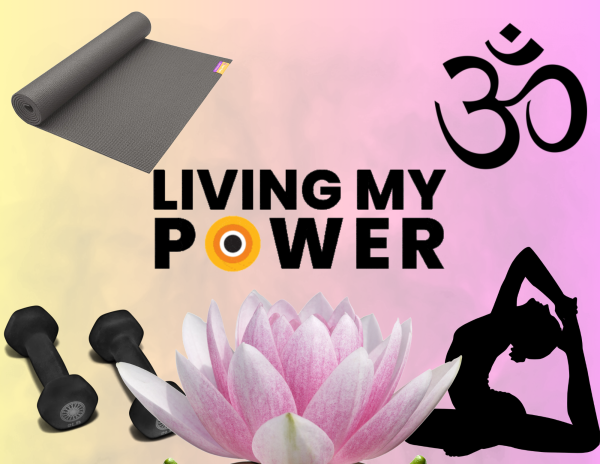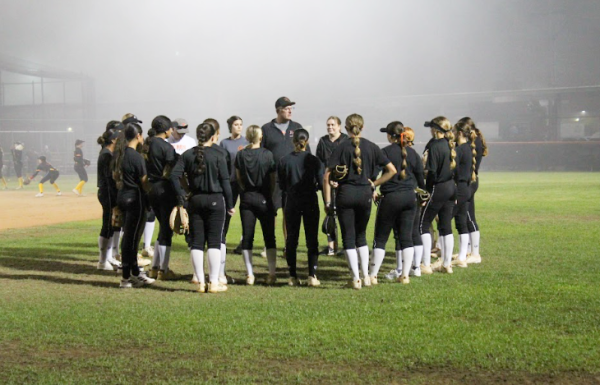Why More Women Should Train Brazilian Jiu Jitsu
Brazilian Jiu-Jitsu, or BJJ, is a martial art and combat sport initially formed in Japan but later developed in Brazil. BJJ showcases specific grappling and ground fighting techniques focusing on strategy and leverage rather than power. Among the many martial arts, Jiu-Jitsu is believed to be one of the best forms of self-defense, especially since it teaches people how to use their bodies defensively and protect themselves in certain situations.
Learning self-defense, especially as a woman, is necessary for various reasons. It can give women the skills and knowledge to protect themselves from physical attacks. Learning self-defense can also help make women more aware of their surroundings, aiding them to recognize and avoid potentially dangerous situations.
Jiu-Jitsu is a form of grappling in which you use your body to create or remove space. According to one of the Jiu-Jitsu greats, Ryon Gracie, the sport has four elements: defending, escaping, controlling—and finally—submitting. The first element is to defend, limiting the potential damage your attacker can cause. The second element is to escape, finding a way to break free from your opponent. The third is control. Once you break free from your opponent, look for and maintain a dominant position. Lastly, the fourth element is to submit. Once you are in total control of your opponent, put enough force on them so they are forced to tap, or submit.
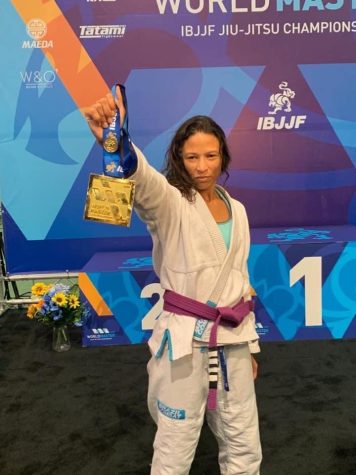
This sport is one of the few martial arts where size doesn’t play a huge factor in who will come out victorious, and the smaller person does have the ability to win. BJJ emphasizes restraint and control rather than striking. Due to this, the victim can use their attacker’s momentum and power against them by highlighting the above-mentioned restraint and control. For example, if someone is looking to hit you, you can control them until the nearest help comes your way. If the attacker attempts to control you, you can create the space necessary to stay away as long as possible or until you gain control.
30-year-old Jiu-Jitsu blue belt Tara Ramsey has been training for two and half years. When interviewed about BJJ, Ramsey said, “It’s scary to be a woman in this day and age. I definitely believe that more women should consider training in this sport. I’ve been training for around two and a half years, and now have the confidence within myself that I can fight back in any situation.”
Don’t get it wrong, Jiu-Jitsu is a great martial art to learn, but it is also incredibly challenging to master. Unlike many martial arts, there are five belts in Jiu-Jitsu—white, blue, purple, brown, and black—taking at least ten years of consistent training to earn the black belt.
 Going into your chosen Jiu-Jitsu gym on the first day can be intimidating, but there is nothing to be afraid of. Jiu-Jitsu is one of the few sports where everyone must fail to grow; it is a continual learning process. There is only success with failure, getting submitted repeatedly but taking those losses and learning from them. Many challenges will be thrown your way throughout practice, but it’s all about how you work through them rather than backing down.
Going into your chosen Jiu-Jitsu gym on the first day can be intimidating, but there is nothing to be afraid of. Jiu-Jitsu is one of the few sports where everyone must fail to grow; it is a continual learning process. There is only success with failure, getting submitted repeatedly but taking those losses and learning from them. Many challenges will be thrown your way throughout practice, but it’s all about how you work through them rather than backing down.
 As you begin to gain experience within the sport while dealing with its many physical and mental challenges, you soon develop a composed mindset. BJJ teaches people how to take account of their emotions and how to stay calm when face to face with adversity.
As you begin to gain experience within the sport while dealing with its many physical and mental challenges, you soon develop a composed mindset. BJJ teaches people how to take account of their emotions and how to stay calm when face to face with adversity.
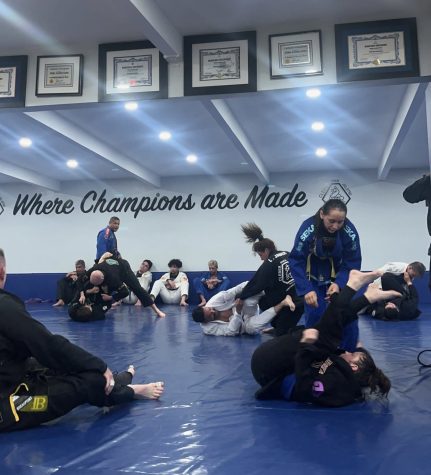
This sport has given me a new level of confidence that I never knew I could achieve. When I started BJJ, I struggled greatly with mental health. The second I stepped into my gym, I knew I was home. This sport has taught me to appreciate my body and all it can do, and wow, I have learned it can do a lot,” said Ramsey when asked about why she chose to train in Brazilian Jiu-Jitsu.
Whether you want to learn effective self-defense or find a new workout or hobby, Jiu-Jitsu is a great option especially for women. By learning effective self-defense skills, promoting a sense of community, improving fitness, and building confidence, there are so many ways in which women could benefit from the sport of Jiu-Jitsu.
Your donation will support the student journalists of Huntington Beach High School. Your contribution will allow us to cover our annual website hosting costs.
Thank you for supporting our program!


